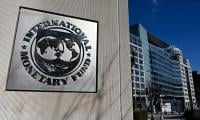ISLAMABAD: Director Chinese Study Centre, National University of Science & Technology Syed Hassan Javed has said that inclusion of Afghanistan’s into CPEC would be a welcoming development since China will serve as the stabilising factor in Afghanistan.
Javed was speaking at a webinar on “Regional integration and CPEC: the case of Gwadar Port” organised by Institute of Regional Studies (IRS) here Monday.
Javed shrugged off the impression that Chabahar and Gwadar, Dubai, and Dammam were the strategic rivals. He was of the view that those ports were complimentary to CPEC, which he called the “sister ports of CPEC.” He said that Pakistan needs to work on greater integration of locals, private sectors as well as overseas Pakistanis into the CPEC projects. He stressed the need to adopt an innovative approach for the second phase of CPEC to untap huge multi-sectoral potentials between the two countries.
While comparing the Chinese investments in Pakistan with the West, Javed said that Chinese direct investment stood very high in comparison to western and eastern countries’ investments altogether. In another comparison of port capacity, he said that Gwadar Port alone can handle load up to 400 million tons of cargo annually once it was completely operationalised, adding that ‘it was almost near to India’s total capacity of all ports’.
Speaking on the occasion, Dr Mir Sadaat Baloch from University of Balochistan called for inclusion of Azad Jammu and Kashmir, and Gilgit Baltistan into the CEPC projects, adding that manufacturing, information, and communication technology also need to be incorporated in the second phase. In terms of establishing the Economic Zones, he said, “We were lagging as we were only able to operationalise the one zone so far.”
He regretted losing energy-related projects in the CPEC which he thought were the backbone of CPEC. He was of the view that the shortcomings of the first phase had actually led us to the IMF.
Biden avoided the large protests at the front of the hotel by arriving through a back entrance
Raoof believed that a younger and ideological cadre had emerged in the party during the last two years
CM expressed her views on the World Day of Safety and Health at Workplace
Schofer said that the US was also supporting a program to empower female students through sports in Punjab
Rival Chinese automakers such as Xpeng 9868.HK have been seeking to gain an advantage over Tesla by rolling out...
The Al Maktoum airport will also include 400 terminal gates and five runways







